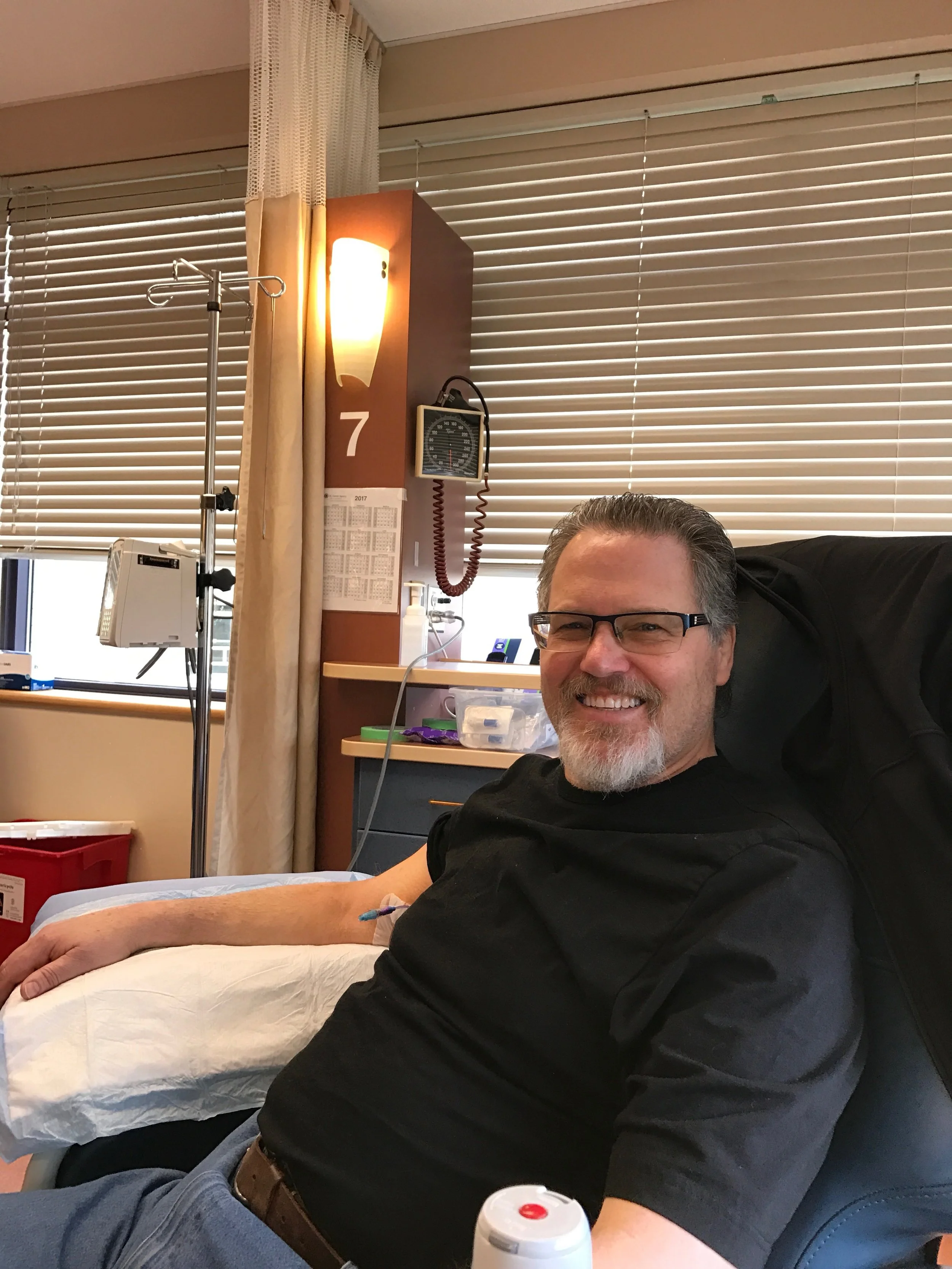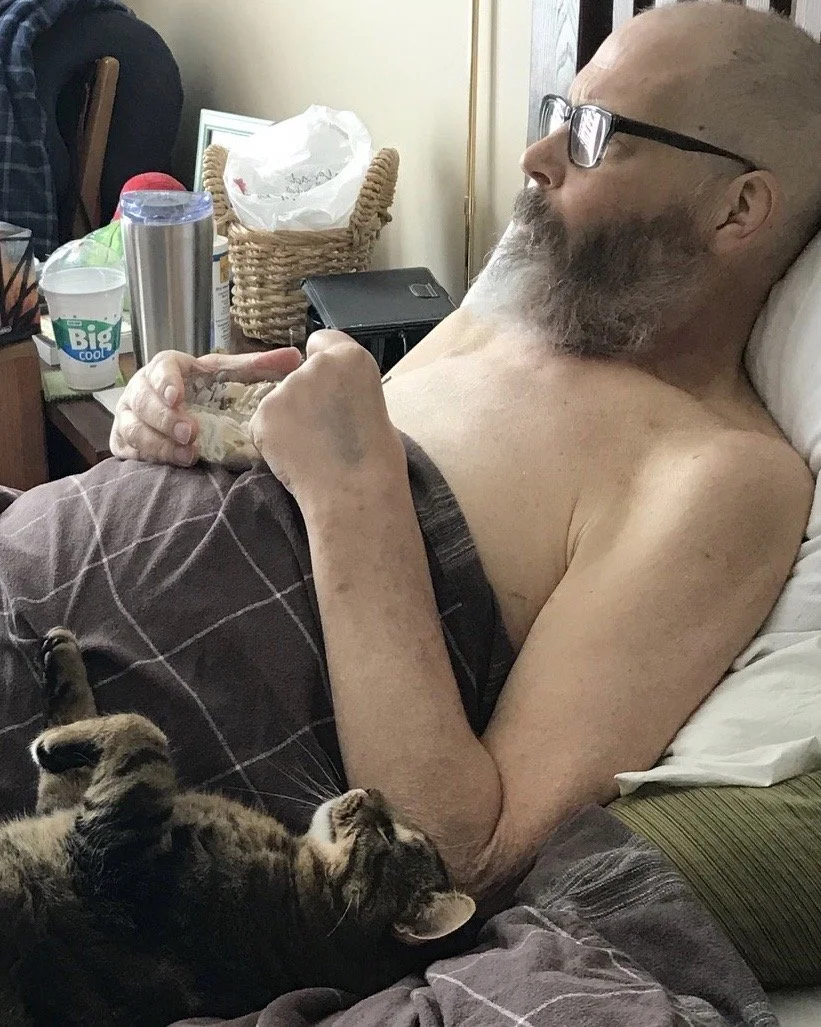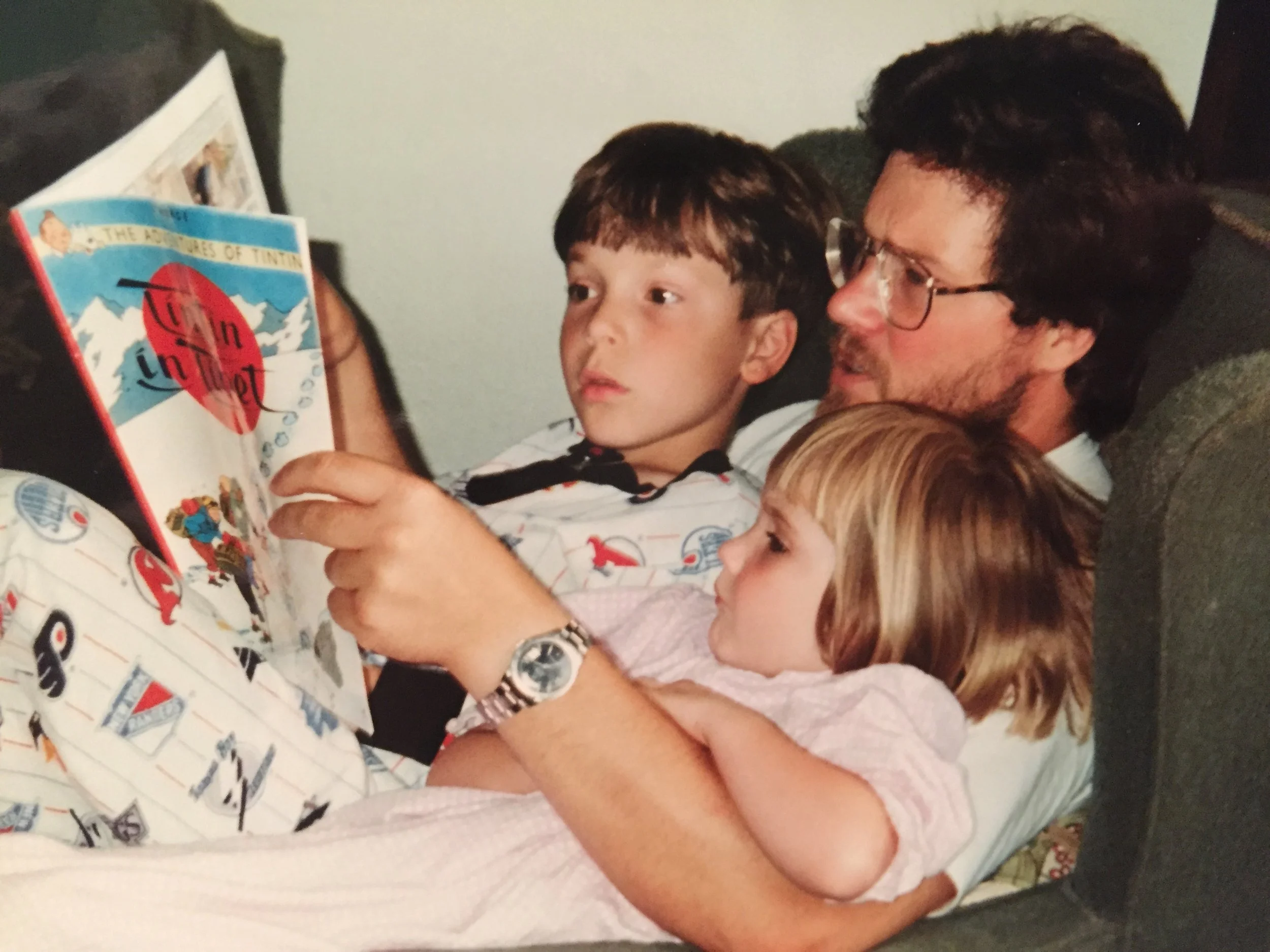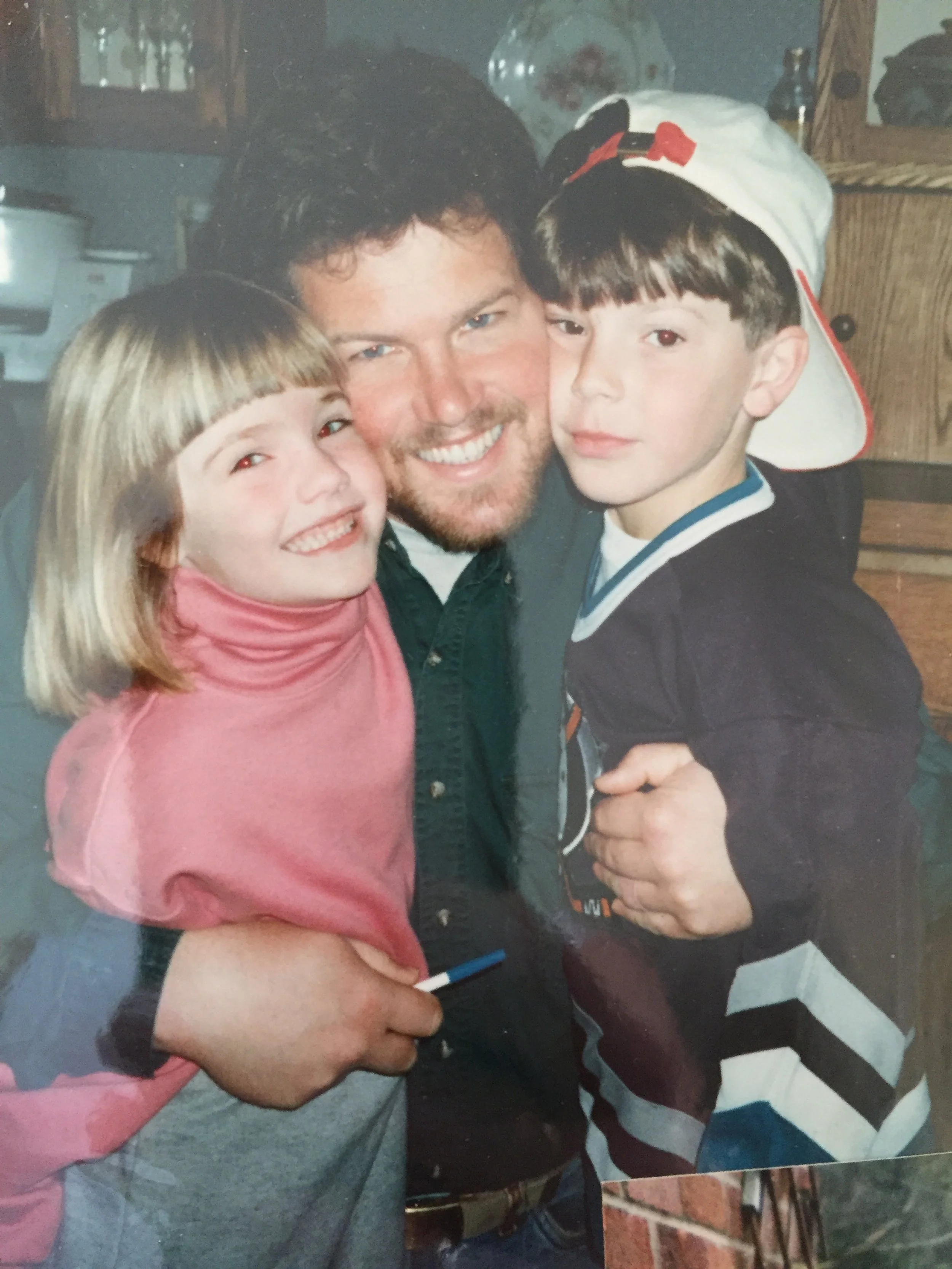My Personal Experience With Grief
When my dad called to tell me he had been diagnosed with stage four pancreatic cancer, I was in Los Angeles on a vacation with my then-boyfriend, now-husband. I remember all I could say was "no," and then I started to cry. I was 27, and my dad was 58.
The days that followed were a fog—each moment trying to keep life "normal" to avoid making anyone uncomfortable, especially myself. I didn't want to draw attention to the pain I felt inside. Over time, I began to ask my dad more questions: "What does this mean?", "Do you feel okay?", "Did they give you a timeline?" We knew it was 3 to 6 months. Remarkably, my dad ended up living almost two years longer—something I later realized was one of the most challenging parts of my grief. People had shaered how lucky we were to have more time, they were not wrong, but it also came with challenges in my experience.
This period was unlike anything I’d ever experienced or heard talked about: pre-grief. I couldn’t find a place to land. Was I grieving too soon? Was I making my dad feel guilty? How much longer would I grieve, now that we’d surpassed the timeline? Would I need to move home to be with him, or would that make things more complicated? If I moved back and he lived for years more, how would that affect my mental health being surrounded by sadness and what would happen to my career? The questions felt overwhelming, all-consuming, impossible to navigate.
I felt utterly alone, scared of how I might feel when he died. As his health declined at the end of 2018, I traveled back to Vancouver Island. I could tell we were nearing the end—perhaps just weeks away. The conflicting part was: do I stay on Vancouver Island and wait, or go back to Toronto, where I was living? He had many ups and downs at this point so for all we knew he could live another year or more. My dad always told me, “I don’t want you to have to sit and wait for me to die. I want you to live.” Yet, I didn't want to be anywhere else, i did not care about anything else. I asked a hospice worker for advice, and her response resonated deeply: “In ten years, will you regret not being here?” The answer was I will regret not being here for the rest of my life. So I stayed.
And I am so grateful I did. I was there with him for the final days, the last 12 hours, witnessing his last breaths. I experienced the death rattle, the final inhale, and was present for when he was pronounced dead. My brother, my dads wife, and I gathered around. In that moment, I felt relief—an unexpected emotion. Relief that I could finally grieve the way I needed to. It felt strange to say, but I was relieved that the waiting was over, that the relentless sadness could finally be expressed freely. But then a new type of grief hit the kind where I knew he was gone, I had experienced loss.
Crying next to him, I eventually fell asleep and was woken by a family friend, she was also one of my high school teachers, informing me the coroners were there. I had been sleeping next to his body for over an hour. That was Monday, January 19th. I was back at work by Friday. Part of me shut down, distracted by over-productivity, trying to ignore the depth of my pain.
Since January 2019, I’ve committed to healing—through therapy and personal work—processing the reality of his leaving and how it shapes my spirit. I grieve him constantly; it’s just not every moment anymore. And now I do things in honour of him or in his memory.
Since his death, I’ve experienced significant life milestones: I got engaged, married, had two boys, and moved back to Victoria—where he grew up. I see him in daily moments now—a smile, a memory, a thought. I often whisper or write to him, saying, “I wish you could see...,” “Meet...,” “Be here for...,” “I wish I could tell you...”
This is where I am with grief today. It’s no longer all-consuming, but it’s present and clear. I have clarity about my feelings and why I feel them and what to do with them. And I know that grief is a journey—one I walk every day, holding onto love and memories, missing him terribly but also feeling his presence in my life. This has been my experience.
I love you, Dad. I miss you.







